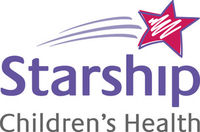Phone (09) 307 4949 ext 22743
Email lizwa@adhb.govt.nz

Starship Paediatric Infection Prevention and Control

Contact Details
When your child is in isolation
Isolation precautions are used to prevent the spread of communicable diseases and organisms between patients, staff and visitors. The types of precautions include:
Contact Precautions
These are used for patients known or suspected to have serious illnesses easily transmitted by direct patient/client contact, or by contact with items in the patient’s environment. Examples of such illnesses include:
- viral infections that are highly contagious, e.g. hand, foot and mouth disease
- skin conditions, e.g. scabies
- gastrointestinal infections, e.g. rotavirus, Clostridium difficile;
- skin or wound infections caused by multi-resistant MRSA or other multi-resistant organisms; viral haemorrhagic infections;
- patients known to be colonised with multi-resistant organisms
- * Note that some disease types require more than one type of precaution
Airborne Precautions
These are used for patients known or suspected to have serious illnesses transmitted by airborne droplet nuclei (5mm or smaller). Examples of such illnesses include:
- tuberculosis (TB)
- chicken pox
- measles
- contacts of chickenpox and measles
- Note: This type of isolation is also to be used for those undergoing investigations for suspected TB whom clinicians have deemed “likely” to have TB. For TB patients, masks must comply with NIOSH (National Institute for Occupational Safety & Health, USA) Standards. Note that TB masks are effective only when they are fitted correctly. Fit testing is required to ensure efficacy (staff are to contact Occupational Health).
Droplet Precautions
These are used for patients known or suspected to have serious illnesses transmitted by large droplet particles (>5mm in size). These droplets can be generated by the patient/client during coughing, sneezing and talking, or during certain procedures e.g. chest physiotherapy. Examples of such illnesses include:
- haemophilus influenzae type b
- invasive Neisseria meningitidis
- bacterial respiratory infections, e.g. pertussis
- respiratory viruses, e.g. mumps, rubella
Protective Isolation
This may be practised to protect patients who are immunocompromised. For isolation requirements for transplant recipients or neutropenic patients, refer to local guidelines.
Visitors when a child is in isolation:
Visitors/whānau are important to the patient who is in isolation. A parent or caregiver may stay overnight with a child in isolation. Siblings and friends may also visit. All visitors need to be well and clear of all communicable diseases such as colds or chickenpox.
It is safe and important to have contact, including hugs and kisses, with a patient in isolation. A child can feel anxious and very lonely when in isolation and touch is very important.
It is important that children and young people receive appropriate developmental stimulation while in isolation. Ways to do this are to bring in photos, letters, cards, games, books, toys, music from home and encourage contact by phone and mail with the school, family and with friends unable to visit.
Starship has play specialists, teachers, Kaiatawhai, Pacific island support workers, hospital volunteers, grandparents and Radio Lollipop, who can provide additional company and stimulation while a child or young person is in isolation.
There will be a sign on the door explaining the type of isolation and what personal protective equipment is required. In general, visitors are not required to wear gloves, a gown or a mask but are expected to perform appropriate hand hygiene before leaving the room.
We ask that any visitors who are unwell or have been in contact with communicable diseases such as measles, mumps, rubella, chickenpox, diarrhoea or vomiting speak to a nurse on arrival.
https://www.healthpoint.co.nz/public/infectious-diseases/starship-paediatric-infection-prevention/